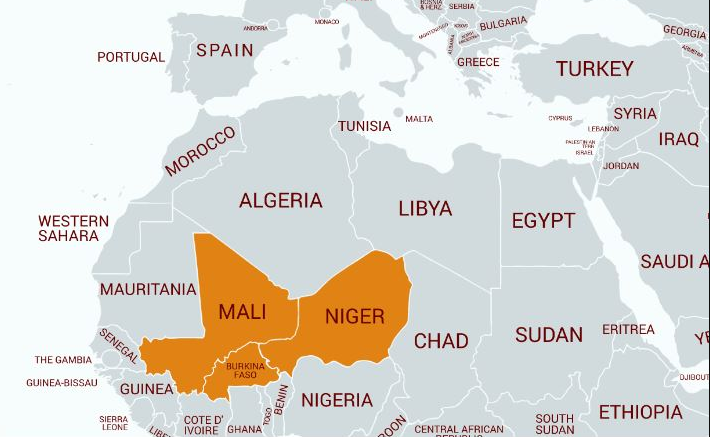Young Chinese opt out of the rat race and pressures at home to pursue global nomad lifestyle
July 29, 2023
BANGKOK (AP) – Shortly after China opened its borders with the end of “zero-COVID,” Zhang Chuannan lost her job as an accountant at a cosmetic firm in Shanghai and decided to explore the world.
“The cosmetics business was bleak,” said Zhang, 34, who explained everyone wore face masks during the pandemic. After being laid off, she paid USD1,400 for an online Thai course, got an education visa and moved to the scenic northern Thai city of Chiang Mai.
Zhang is among a growing number of young Chinese moving overseas not necessarily because of ideological reasons but to escape the country’s ultra-competitive work culture, family pressures and limited opportunities after living in the country under the strict pandemic policies for three years.
Southeast Asia has become a popular destination given its proximity, relatively inexpensive cost of living and tropical scenery.
There is no exact data on the number of young Chinese moving overseas since the country ended pandemic restrictions and reopened its borders. But on the popular Chinese social media platform Xiaohongshu, hundreds of people have discussed their decisions to relocate to Thailand.
Many get a visa to study Thai while figuring out their next steps. At Payap University in Chiang Mai, around 500 Chinese began an online Thai course early this year.
Royce Heng, owner of Duke Language School, a private language institute in Bangkok, said around 180 Chinese inquire each month about visa information and courses.
The hunt for opportunities far from home is partly motivated by China’s unemployment rate for people ages 16 to 24, which rose to a record high of 21.3 per cent in June. The scarcity of good jobs increases pressure to work long hours.
Opting out is an increasingly popular way for younger workers to cope with a time of downward mobility, said Beverly Yuen Thompson, a sociology professor at Siena College in Albany, New York.
“In their 20s and early 30s, they can go to Thailand, take selfies and work on the beach for a few years and feel like they have a great quality of life,” Thomson said.
“If those nomads had the same opportunities they hoped for in their home countries, they could just travel on vacation.”
During the pandemic in China, Zhang was cooped up in her Shanghai apartment for weeks at a time. Even when lockdowns were lifted, she feared another COVID-19 outbreak would prevent her from moving around within the country.
“I now value freedom more,” Zhang said.
A generous severance package helped finance her time in Thailand and she is seeking ways to stay abroad long-term, perhaps by teaching Chinese language online.
Moving to Chiang Mai means waking up in the mornings to bird songs and a more relaxed pace of life. Unlike in China, she has time to practice yoga and meditation, shop for vintage clothes and attend dance classes.
Armonio Liang left the western Chinese city of Chengdu in landlocked Sichuan province for the Indonesian island of Bali, a popular digital nomad destination. His Web3 social media startup was limited by Chinese government restrictions while his use of cryptocurrency exchange apps drew police harassment.
Moving to Bali gave the 38-year-old greater freedom and a middle-class lifestyle with what might be barely enough money to live on back home.
“This is what I cannot get in China,” said Liang, referring to working on his laptop on the beach and brainstorming with expatriates from around the world. “Thousands of ideas just sprouted up in my mind. I had never been so creative before.” He also has enjoyed being greeted with smiles.
“In Chengdu, everyone is so stressed. If I smiled at a stranger, they would think I am an idiot,” he said.
Life overseas is not all beach chats and friendly neighbors, though. For most young workers, such stays will be interludes in their lives, Thompson said.
“They can’t have kids, because kids have to go to school,” Thompson said. “They cannot fulfill their responsibilities to their parents. What if their aging parents need help? They eventually will get a full-time job back home and get called back home because of one of those things.”
Zhang said she faces pressure to get married. Liang wants his parents to move to Bali with him.
“It’s a big problem,” Liang said. “They worry they will be lonely after moving out of China and worry about medical resources here.”
Huang Wanxiong, 32, was stranded on Bohol Island in the Philippines for seven months in 2020 when air travel halted during the pandemic, and he spent his time learning free diving, which involves diving to great depths without oxygen tanks.
He eventually flew home to the southern Chinese city of Guangzhou, but lost his job at a private tutoring company after the government cracked down on the industry in 2021. His next gig was driving more than 16 hours a day for a ride-hailing business.
“I felt like a machine during those days,” Huang said. “I can accept a stable and unchanging life but I cannot accept not having any hope, not trying to improve the situation and surrendering to fate.”
Huang returned to the Philippines in February, escaping family pressures to get a better job and find a girlfriend in China. He renewed his Bohol Island friendships and qualified as a dive instructor.
But without Chinese tourists to teach and no income, he flew home again in June.
He still hopes to make a living as a diver, possibly back in Southeast Asia, though he also may agree to his parents’ proposal to emigrate to Peru to work in a family-run supermarket.
Huang recalled he once surfaced too quickly from a 40-metre dive and his hands trembled from a dangerous lack of oxygen, known as hypoxia.
The lesson he took was to avoid rushing and maintain a steady climb. Until his next move, he plans to use that free diver discipline to counter the anxieties of living in China.
“I will apply the calm I learned from the sea surrounding that island to my real life,” Huang said. “I will maintain my own pace.”













 President Putin, right, shakes hands with Mozambique President Filipe Nyusi at the Russia-Africa Summit in St. Petersburg, July 28, 2023. AP - Alexei Danichev
President Putin, right, shakes hands with Mozambique President Filipe Nyusi at the Russia-Africa Summit in St. Petersburg, July 28, 2023. AP - Alexei Danichev



